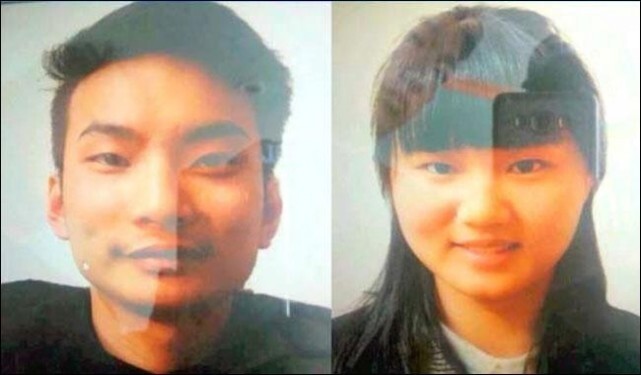hankyoreh
Links to other country sites 다른 나라 사이트 링크
Chinese say “hide your soul” from South Korean missionaries

Chinese denunciations of South Korea are rearing their head after reports that two Chinese nationals reported killed after being abducted by the group Islamic State (IS) were working with a South Korean missionary group.
Through its account on the Chinese social media service Weibo, the Chinese Communist Youth League (CYL) quoted these claims from a Chinese news article in a post reading, “If you meet Koreans like this, hide your soul.” The message’s implication was that Chinese readers should be cautious of South Koreans “bewitching” them with evangelist activities. Replies to the message included calls for South Koreans to “get out of China” and for Chinese readers to “be careful of China’s infiltration by dangerous Korean Christianity.”
Since reports in IS propaganda that two Chinese abductees were slain in the Pakistani province of Balochistan on June 8, claims of South Korean missionary group involvement have been posited by Chinese online media and other sources. Citing local sources, the Global Times-run social media account Huanhuan claimed in a June 9 post that the two were among 13 young Chinese nationals attending ARK, an Urdu educational institution established and run by South Koreans. The report claimed that the language education was merely a front for religious activities.
The Huanhuan report also said the abductees’ daily schedule consisted of language courses, internal meetings, and religious ceremonies, during which attendees would go out in groups of three to five to show Christian-related videos to locals or sing hymns and encourage participation in religious activities. Local residents, the vast majority of them Muslims, saw the activities as an infringement on their own religious life. “As the activities became more frequent, the situation became
riskier, as the 13 people attracted the attention of more local people,” reported the online news site Pengpai The (Paper), adding that the region was “an area where extremist forces have long been active.”
Chinese media have reported on South Korea’s approach to missionary activities as posing a danger to Chinese people. They’ve also reported that South Korean churches have begun recruiting Chinese participants after abductions and killings prevented from doing further missionary work in the Middle East. One SNS account identified as “Housa” argued that the school was not protected by Pakistani authorities because it was not a Chinese facility, and that restrictions on the attendees’ mobile phone use by the South Korean women who established it prevented a response to the crisis. Critics also noted that attendees, most of them born in the 1990s, received payment of 1,900 yuan (US$279) per month, which they denounced as “cheap labor.” The Balochistan area has reportedly been an ongoing setting for South Korean missionary activity, although no specifics have been reported on the group where the incident occurred.
Antipathy over South Korean churches’ missionary activities could spread in China as it combines with rising anti-Korean sentiment in the wake of the THAAD controversy. Notably, some of the comments on related articles claimed that South Korean missionary activities were particularly serious in the three northeastern provinces (Heilongjiang, Liaoning, and Jilin) and Shandong Province and called on the state to “take care of them.”
By Kim Oi-hyun, Beijing correspondent
Please direct questions or comments to [english@hani.co.kr]

Editorial・opinion
![[Guest essay] The real reason Korea’s new right wants to dub Rhee a founding father [Guest essay] The real reason Korea’s new right wants to dub Rhee a founding father](https://flexible.img.hani.co.kr/flexible/normal/500/300/imgdb/original/2024/0423/8317138574257878.jpg) [Guest essay] The real reason Korea’s new right wants to dub Rhee a founding father
[Guest essay] The real reason Korea’s new right wants to dub Rhee a founding father![[Column] ‘Choson’: Is it time we start referring to N. Korea in its own terms? [Column] ‘Choson’: Is it time we start referring to N. Korea in its own terms?](https://flexible.img.hani.co.kr/flexible/normal/500/300/imgdb/original/2024/0423/3617138579390322.jpg) [Column] ‘Choson’: Is it time we start referring to N. Korea in its own terms?
[Column] ‘Choson’: Is it time we start referring to N. Korea in its own terms?- [Editorial] Japan’s rewriting of history with Korea has gone too far
- [Column] The president’s questionable capacity for dialogue
- [Column] Are chaebol firms just pizza pies for families to divvy up as they please?
- [Column] Has Korea, too, crossed the Rubicon on China?
- [Correspondent’s column] In Japan’s alliance with US, echoes of its past alliances with UK
- [Editorial] Does Yoon think the Korean public is wrong?
- [Editorial] As it bolsters its alliance with US, Japan must be accountable for past
- [Guest essay] Amending the Constitution is Yoon’s key to leaving office in public’s good graces
Most viewed articles
- 1[Column] ‘Choson’: Is it time we start referring to N. Korea in its own terms?
- 2Why Korea shouldn’t welcome Japan’s newly beefed up defense cooperation with US
- 3Senior doctors cut hours, prepare to resign as government refuses to scrap medical reform plan
- 4[Guest essay] The real reason Korea’s new right wants to dub Rhee a founding father
- 5Opposition calls Yoon’s chief of staff appointment a ‘slap in the face’
- 6[Column] The clock is ticking for Korea’s first lady
- 7Terry Anderson, AP reporter who informed world of massacre in Gwangju, dies at 76
- 8New AI-based translation tools make their way into everyday life in Korea
- 9Samsung barricades office as unionized workers strike for better conditions
- 10Korea ranks among 10 countries going backward on coal power, report shows